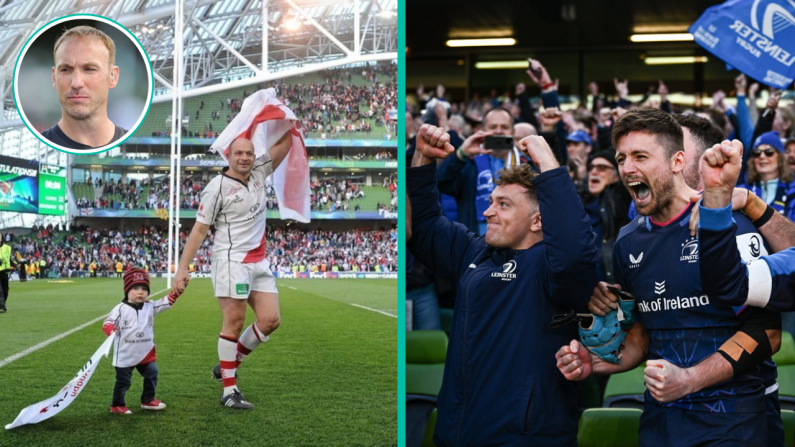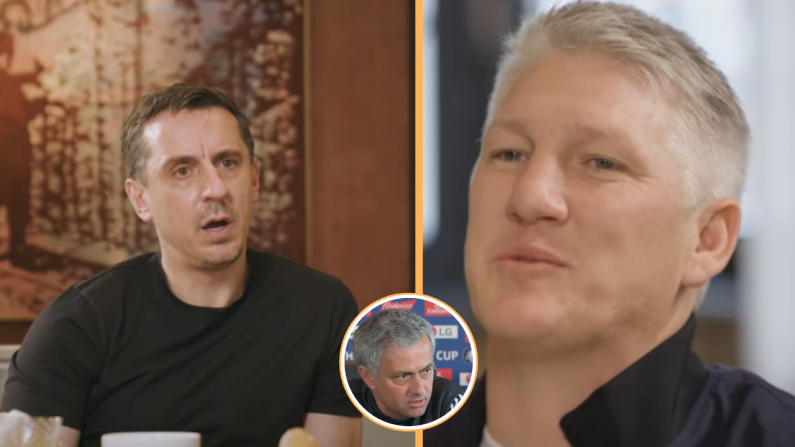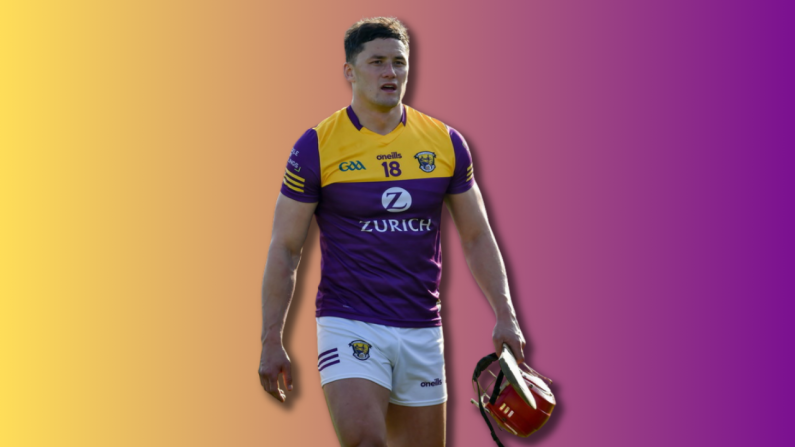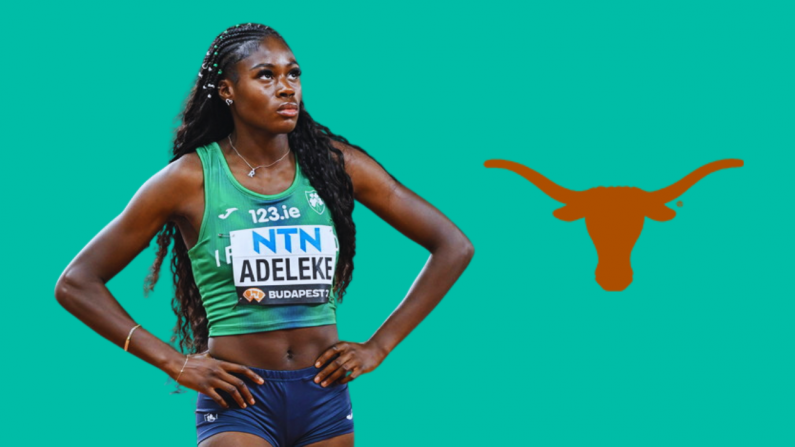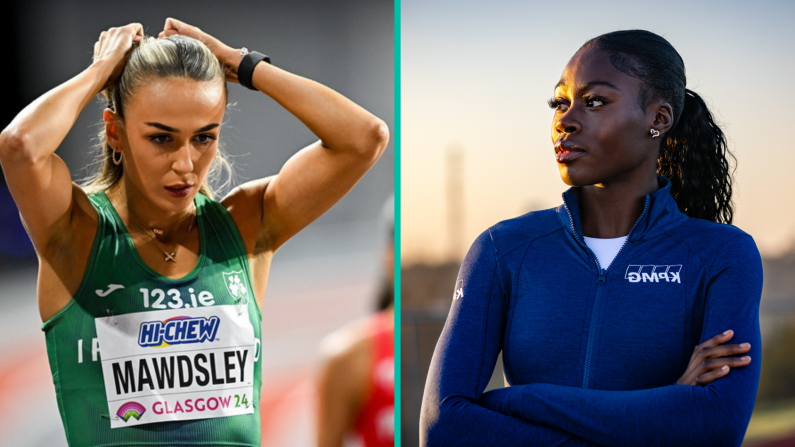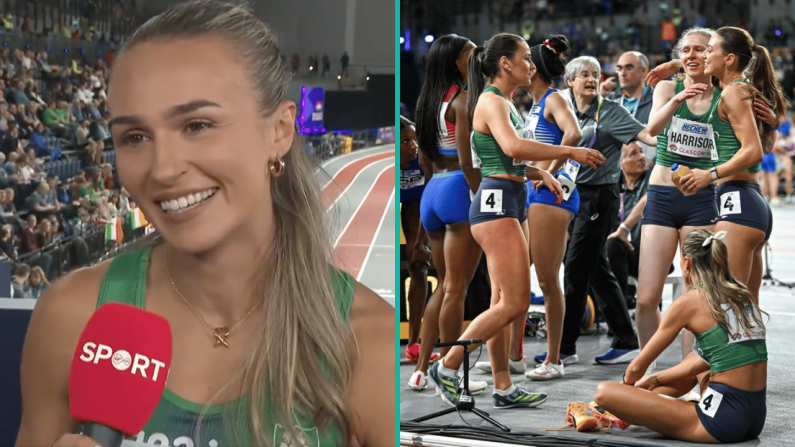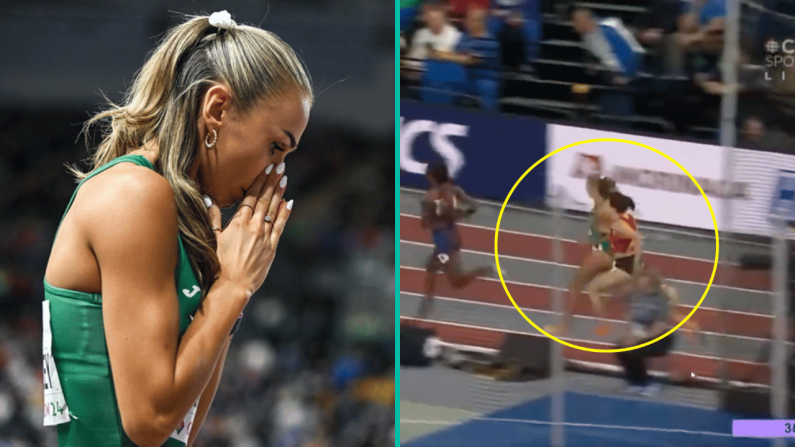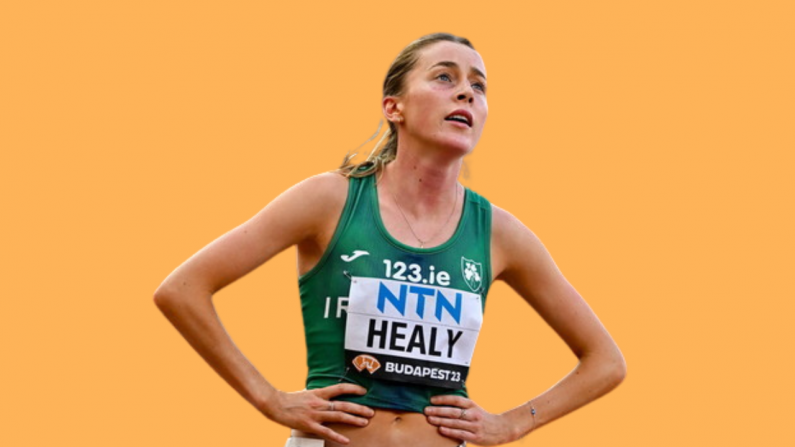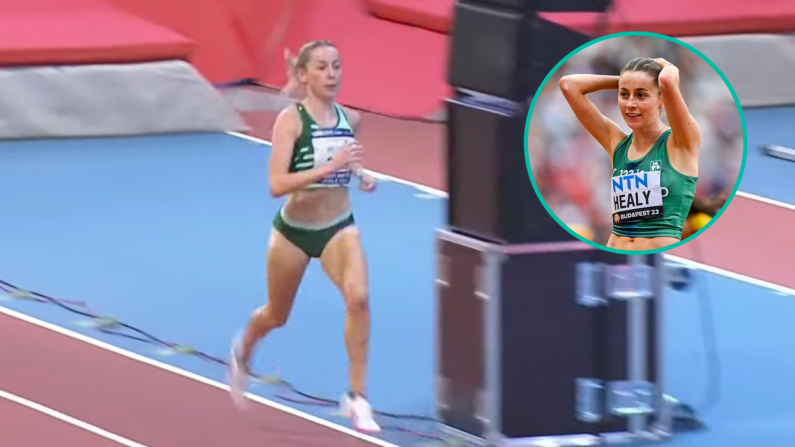At some stage in life, we must all reckon with the universe's indifference to us.
Few have won this battle quite as emphatically as Michael McKillop.
Having been diagnosed with cerebral palsy just shy of his third birthday, McKillop was forced by teachers to stay inside during breaktimes at primary school. "I kept on falling over, as my coordination and balance wasn’t great. So they banned me from going out...I was deemed a health hazard to myself and the other kids".
By the age of 11, he had won the Northern Ireland and Ulster cross-country championships. "It proved to my teachers I was able enough to represent the school, and to beat all of the kids in Northern Ireland and Ulster. It was about being the best, not the best kid with a disability".
Now 27, McKillop has undoubtedly become the best. 2017 ended as each of the last ten years have: undefeated. It was burnished as many others have too: a couple of gold medals at the world championships to add to the haul. Between those championships, Europeans and Paralympic games, McKillop holds a remarkable 12 gold medals.
"It has been really good, but there have been negatives with it", McKillop tells Balls when reflecting on 2017. Remarkably, his double World Championship gold was achieved against the backdrop of serious - and mysterious - pain. (The injury has yet to be fully diagnosed. Given that three MRI scans came back clear, a top English consultant couldn't figure it out, McKillop this week underwent a procedure to assuage a pain manifest in his groin).
Three weeks prior to the championships, McKillop woke up with excruciating pain knotted in his stomach.
At times I couldn’t get out of bed, I had to roll myself out of bed. I couldn’t do simple exercises I was in just so much pain. When it came around to the world championships I wasn’t sure if I could compete.
I just had to grit my teeth, keep it quiet and in-house, and get the job done as best I could.
He got the job done in style, overcoming more than the injury in doing so. The Colombian team got creative in trying to upset his rhythm in his 800-metre heat. For the first lap, it looked like McKillop and others would have to battle it out for second place. Colombian Dixon de Jesus Hooker Velasquez took off at a flying pace on the first lap, building up a substantial lead at the bell.
Midway through the race, however, Velasquez dropped out of the race in what transpired to be a tactic to tempt McKillop to over-exert himself ahead of the final.
To be perfectly honest, seeing him in the callroom, I was thinking, ‘you are not an 800-metre runner’. He has never competed in the 800m race, I’d never really seen him before, but you could see from the way he was warming up that he was more of a sprinter.
But he was there, he was a challenger, and he’s someone I had to be serious about.
Whenever the gun went off, he went off like the clappers. He ran 52.8 in the first 400 metres, it was a bit nuts. In my head, after the first 200 metres, I was thinking that my unbeaten run for ten years is gone here.
But then I began to think that he won’t be able to keep this up. The world record for my event is 1.57, the world record for the 400 metres in my classification is 50.8 so for him to run 52.8 and go through, it was very unlikely he was going to be able to finish.
In the 1500-metre final, McKillop left it late to pull away from Canadian Liam Stanley.
It was pretty much a joke how it turned out, it was embarrassing. I knew the tactic of the Canadian guy was literally just to sit beside me and then make a break. I waited until he made a break, to show my dominance in my category of the 1500 metres, and beat him on his terms rather than just mine.
I ran a 57.1 on my last lap, so we got shifting eventually with around 450 (metres) to go. But that’s championship racing. It doesn’t matter about times, it is the gold medals that count. I played a dodgy game, at 400 metres anyone can run a fast 400, but I wanted to show the dominance I have in my classification.
Where does this confidence come from? "It comes from the amount of hard work I know I’ve put in. I know how much it takes to be the best, and because I’ve been unbeaten I know I can have that confidence in myself. I’m confident in my own ability and in my training".
McKillop has been working harder than anyone since he was three. A year after his diagnosis, he became the first child in Europe to be injected with botox to aid his muscles, a treatment which had only previously been trialed on mice. He was taken to occupational therapy, speech therapy, and physiotherapy every fortnight, and was encouraged to take up every sport imaginable by his father when the family learned it would help Michael's diagnosis.
When we realised that mobility and movement would help with my disability – it didn’t matter if it was a hurling stick, a hockey stick, a tennis racket, a football or a tennis ball – they made sure I was mobile enough and using my right side that allowed me as able as I am today.
At the time, when I was diagnosed at two years and ten months, they didn’t know if I would end up in a wheelchair or not.
And it was down to my parents’ will-power to make sure I had the same opportunity. So I’m very grateful to them.
McKillop ultimately went to St Malachy's Grammar School, and naturally found himself on the running team. To keep pace with his peers, McKillop's father devised Michael a rigorous training schedule of five sessions a week, one of them doing circuits in the gym, to maintain his stability. "The reason I’m successful in Paralympic sports is because I trained with able-bodied athletes from the moment I started. I see no difference, and I wanted to beat whoever was put in front of me", recalls McKillop.
That McKillop had the determination to throw himself into such work is probably the defining characteristic of his success, and the year before he joined Malachy's elucidates his motivation.
I went to secondary school for my first year, before switching over to a grammar school, St Malachy’s.
But the first school I went to, I didn’t fit in. It was a kind of a…rough school, you can probably say. I stood out. I was different because I was walking with a limp, I didn’t have [the full use] of my right arm, I had learning difficulties.I think with that, one student in particular picked me out of the bunch. I remember getting things thrown at me, and verbal abuse. To be perfectly honest now, if I got to meet the guy who bullied me in first year, I would shake his hand.
He made me the most determined person to prove people wrong.
This quality runs in the family. Before every race, McKillop seeks the inspiration of his aunt and godmother, Kate. She and her husband emigrated to Canada, and a young McKillop spent three weeks of his summer holidays staying with them when he was young. A year later, McKillop's family booked their first trip to Canada as a family.
Three months before they were scheduled to visit, Kate was diagnosed with cancer. She still insisted the McKillop family visit, and that they take her out of hospital and bring her home, too. Gravely ill, she spent a day and a half at her home with Michael and the family, before being forced to return to hospital. Four days later, she passed away.
McKillop visits her grave and lays a wreath before he departs for competition, and summons her memory ahead of every race.
I call her my guardian angel, and I always feel that whenever I go to compete, if I have her on my side I can go in and do her proud. When I’m on the track I would zone out of everything but the race. But I talk to her just before the callroom, asking her to help me, support me, and look after me.
She showed strength and determination. Even though she was weak and she was down, she wanted to come out and see her family. That’s what she wanted, she had asked us to come over, and she wanted to prove she could spend time with us.
When she passed away it was tough to take, because obviously she had shown so much strength and determination. So whenever I go into a race, I want to show the same strength and determination she had when she was fighting the illness.
McKillop is getting married next year, but before the wedding, there's the small business of his defence of his European titles in Berlin and the stretching of that unbeaten run to 12 years.
You wouldn't bet against him, would you?


